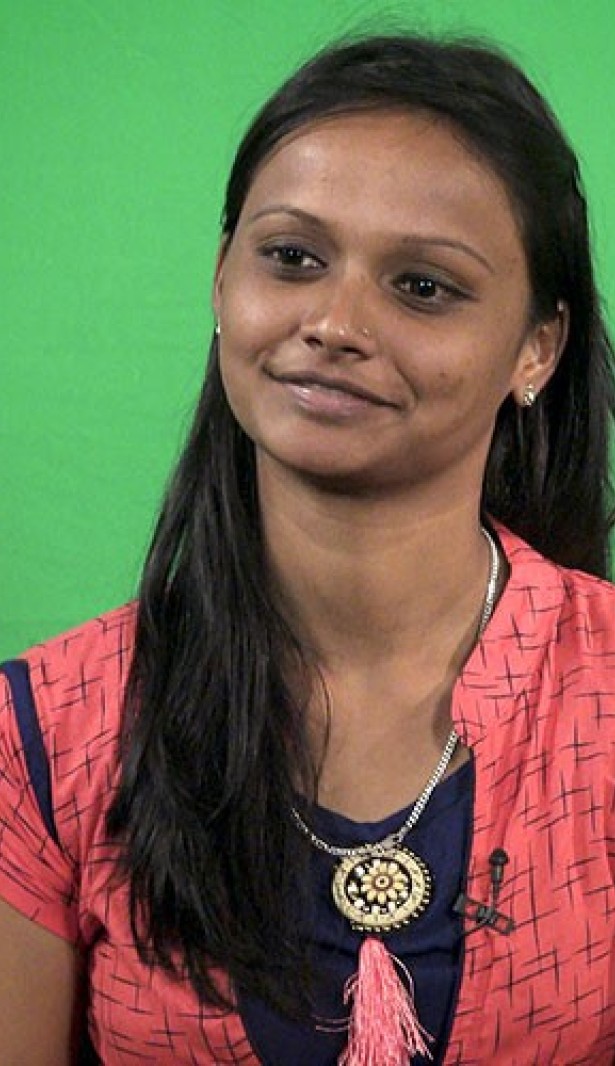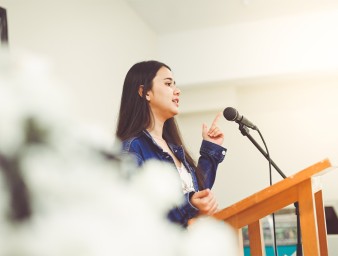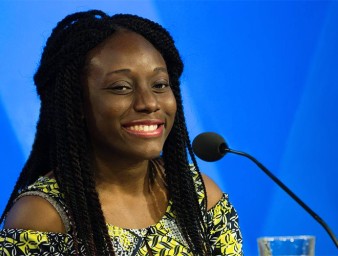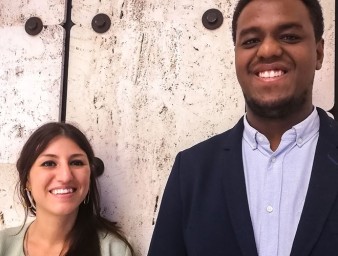From student to human rights defender: the power of human rights education
24 January 2020
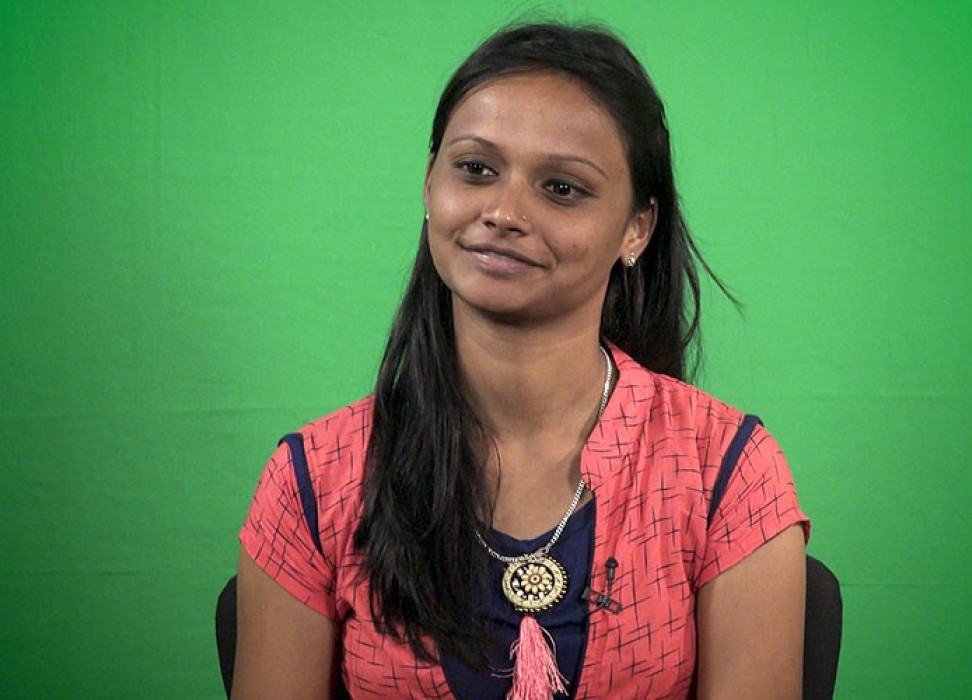
"Before, I was not aware of my rights. Now, I am aware of all of them. I have the courage to stand up for myself and to ask for my rights when I am denied them."
Premalatha Tamilselvan belongs to India's Dalit minority community. From a village in the southern state of Tamil Nadu, she has known discrimination since birth: formerly, the Dalit were known as the 'untouchables,' excluded from society and largely denied basic human rights.
"People from the higher castes do not want the Dalit people to progress in life. They still want to suppress us," explains Premalatha.
When she was in the eighth grade, a programme organised by People's Watch, an Indian non-government organisation, and supported by UN Human Rights, was rolled out in Premalatha's school. Students and teachers learned about children's rights, and the principles of non-discrimination and equality.
Human rights education – "the power to make lives change"
Human rights education programmes focus on developing knowledge and skills and promoting values, beliefs and attitudes that encourage all individuals to uphold their own rights and those of others.
"Human rights education has the power to make lives change," said Elena Ippoliti, from the Methodology, Education and Training section of UN Human Rights. "As individuals realise that all people are entitled to a free and dignified life, can critically analyse the challenges they face and identify solutions consistent with human rights values, they are able to transform their lives and bring about change within their communities."
The World Programme for Human Rights Education, launched in 2005 by the UN General Assembly, aims to progress the implementation of human rights education programmes globally. It ensures a framework for action to be taken, and strengthens partnership and collaboration, from the international to the grass roots levels.
UN Human Rights is leading the coordination of this Programme. This year, the start of a new decade marks its fourth five-year phase, 2020-2024, which focuses on human rights education for youth and by youth, in recognition of their role as key agents in the realisation of human rights.
Yesterday, a child. Today, a young woman who knows her rights.
In Premalatha's case, human rights education has propelled her forward in life to be able to recognise and affirm her value, and to stand up for the rights of others. Nine years after she attended the programme, at the age of 21, Premalatha was able to come to Geneva, Switzerland to address the Human Rights Council's Social Forum. She spoke about caste discrimination in education.
Today, her ambition is to become a lawyer and advocate for "people who need justice." She holds a BA in History, and is currently trying to get into law school.
For her, the widespread caste-based discrimination is one of the biggest human rights concerns facing India today. "People from two different castes are not meant to fall in love and get married, and if they do and are caught, they will be killed immediately as a matter of 'honour.'"
While she is trying to fight against this structurally embedded discrimination, Premalatha believes that human rights education in all public and private schools could help. "This way, children from both high and low castes will know their rights and duties, and will stop discrimination against each other. They will become more aware, and be able to understand what is right and wrong."
Premalatha strongly believes in the power of youth to fight for a better future. But first, young people need to be made aware of their rights, and then they will gradually fight for them, she says.
"We must look to creating a better society in the future, where people are free and equal, where they are allowed to love and marry whomever they want," Premalatha states. "Sometimes, older people have a very fixed way of thinking and do not allow youth to change, so it becomes the responsibility of young people to stand up for our rights."
In 2012, Premalatha's story was featured in a documentary, A Path To Dignity: The Power of Human Rights Education, co-produced by UN Human Rights.
24 January 2020
